As a business owner or entrepreneur, finding the best laptop for running a business is crucial for staying organized, efficient, and competitive in today's fast-paced digital world. With so many options available, it can be overwhelming to sift through the seemingly endless array of laptop models. Luckily, I've been in your shoes and have done the legwork for you, reviewing an extensive laptop spreadsheet of recent releases, comparing specs and reviews, and narrowing down the top laptops based on business-specific requirements and price ranges.
One of the primary factors to consider when selecting the best laptop for running a business is the device's ability to handle multitasking and performance-intensive applications. As a business professional, you'll likely be juggling multiple tasks at once, such as managing projects, analyzing data, video conferencing, and more. Therefore, it's essential to choose a laptop with a powerful processor, sufficient RAM, and ample storage to ensure smooth and seamless operation.
Another crucial consideration is portability and battery life. Business owners are often on-the-go, attending meetings, traveling, or working remotely. A lightweight laptop with a long-lasting battery will make it easier for you to work from anywhere without being tethered to an outlet. Additionally, investing in a laptop with a high-quality display and a comfortable keyboard will enhance your productivity and reduce eye strain during those long workdays. By focusing on these key factors, you'll be well on your way to finding the best laptop for running a business that meets your unique needs and preferences.
Powering up your business: Choosing the right processor for your laptop
As the market for laptop processors continues to evolve, it's important to stay up to date on the latest releases and what they can offer for your business needs.
Apple's ARM-based M1 and its successors have been making waves in the industry with their exceptional single-core performance and battery life. However, if you're looking for a Windows laptop, ultrabooks are a great option for better battery life, while regular notebooks offer better performance.
When choosing a processor, it's crucial to make sure it's up to date. If you're looking for the best possible performance, consider an H-series processor like the Intel Core i7-H. On the other hand, if battery life is your priority, U-series processors like the Intel Core i5 or AMD Ryzen 5 are a better fit.
Geekbench scores are a popular way to compare different processors, but it's important to keep in mind that they only measure single-core performance. For a more comprehensive benchmark, we recommend using Cinebench and PassMark, which are great at measuring general-purpose performance.
Here are our recommendations for processors based on price bracket:
| Price Bracket | Recommended Processor |
|---|---|
| Minimum | Intel Core i3-1115G4 |
| Recommended | Intel Core i5-1135G7 |
| High-End | Intel Core i7-11370H |
Remember, if you're looking for a budget business laptop, don't expect to have the latest and greatest processor. Instead, focus on getting a well-rounded machine with a good display, plenty of RAM, and storage space (preferably an SSD). Ultimately, choosing the right processor will depend on your specific needs and budget, but these recommendations should serve as a solid starting point for any business user.
Power Up Your Business with the Right Graphics Card
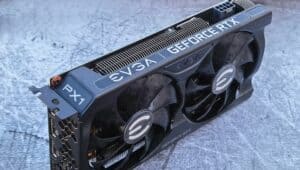
When it comes to business laptops, a dedicated graphics card is not necessary for most applications. However, if you plan to create visual content or play games, investing in a graphics card can be helpful.
Currently, Nvidia dominates the laptop GPU market, with their RTX 30 series cards making up the majority. The recently released RTX 40 series cards are also starting to hit the shelves.
When comparing laptops, using industry-standard benchmarks such as 3DMark is a good way to determine how different GPUs perform in real-world tests. However, it's essential to consider other specifications such as CPU clock speed and RAM amount since they also affect overall performance.
If you need a gaming laptop for your business, look for one with a high refresh rate display (144Hz or higher) to minimize input lag and keep up with today's fast-paced eSports scene.
Here are our recommendations for GPUs based on each price bracket:
- Minimum: GeForce GTX 1650
- Recommended: GeForce RTX 3050
- High-end: GeForce RTX 2060
Keep in mind that the latest and greatest GPUs from Nvidia come with a hefty price tag and may not be worth the investment unless you need the best laptop for business that money can buy.
Biz-tech shopping? Here are your FAQs
Q: What is the best laptop for running a small business?
The best laptop for running a small business depends on your specific needs. However, we recommend the MSI Summit E13, which offers excellent performance, durability, and battery life at a reasonable price.
Which laptop is best for business use under TOPIC_QUESTIONS,000?
For business use under TOPIC_QUESTIONS,000, we recommend the ASUS Zenbook. It provides enough power and storage to handle basic office tasks and has a sleek design perfect for business meetings.
What are the must-have specs for a business laptop?
The must-have specs for a business laptop are a minimum of i3-1115G4 processor, GeForce GTX 1650 graphics, and 8 GB memory. However, we recommend upgrading to an i5-1135G7 processor, GeForce RTX 3050 graphics, and 16 GB memory for better performance.
What is the battery life requirement for a business laptop?
A good battery life requirement for a business laptop is at least 8 hours. However, we recommend looking for laptops that offer more than 10 hours of battery life for optimal performance.
Should I choose a Windows or Mac laptop for business use?
Both Windows and Mac laptops are suitable for business use, but it depends on personal preferences and the software you need. Windows laptops are more affordable, offer more software compatibility, and have more customization options. Mac laptops are known for their sleek design, superior build quality, and are favored by creative professionals.
Is an SSD necessary for a business laptop?
Yes, an SSD (Solid State Drive) is necessary for a business laptop. It provides faster boot and load times, which are crucial for optimal productivity.
Can a business laptop run heavy software like Photoshop or Premiere Pro?
Yes, a business laptop can run heavy software like Photoshop or Premiere Pro if it meets the minimum specifications requirements. However, we recommend opting for a higher specification laptop for a better user experience.
What is the ideal screen size for a business laptop?
The ideal screen size for a business laptop is between 13 and 15 inches. It provides the perfect balance of portability and screen real estate, making it easy to carry around and work on the go.
How to protect data on a business laptop?
To protect data on a business laptop, we recommend using encryption software, installing anti-virus software, and enabling two-factor authentication. We also recommend keeping regular backups of important data and not sharing passwords with anyone.
Should I get a warranty for my business laptop?
Yes, we strongly recommend getting a warranty for your business laptop. It provides an extra layer of protection against accidental damage, hardware malfunctions, and ensures that your investment is safe. We recommend choosing a warranty that covers at least two years and offers on-site support.
RAM: Running Your Business like a Pro
In recent years, the amount and type of RAM available in laptops have seen some significant changes. Most mid-range laptops now come with 16 GB of RAM, while high-end laptops can have 32 GB or more. Additionally, the latest-gen Intel and AMD CPUs support DDR4 and DDR5, although DDR5 is still quite expensive and not yet widely used.
When it comes to running a business laptop, RAM is one of the most crucial components, especially if you're working with large spreadsheets or complex models. Most business laptops come with 8 GB of memory, which is enough for most tasks. However, if you're working with large files or frequently working with multiple applications at once, 16 GB would be ideal.
While DDR5 is the latest memory technology, it's not worth the investment if you're looking for a laptop that will last you for years to come. Instead, look for a laptop with DDR4 memory, or even better, DDR4/H. These are more than enough to ensure smooth performance in most business applications.
When it comes to RAM frequency, it's not as crucial as the amount of RAM you have. While higher frequencies can provide a slight boost in performance, it's not worth the extra cost unless you're running very demanding applications.
To help you decide on the right amount of RAM for your business laptop, here's a table of average laptop prices depending on RAM amount and price range:
| RAM Amount | Price Range | Average Price |
|---|---|---|
| 8 GB | Budget | $500 – $800 |
| 8 GB | Mid-Range | $800 – $1,200 |
| 16 GB | Mid-Range | $1,200 – $1,500 |
| 32 GB | High-End | $1,500 – $2,000+ |
In summary, if you're running a business laptop, you'll want to ensure you have enough RAM to handle your workload. For most people, 16 GB is ideal, but if you're working with more demanding applications, 32 GB might be necessary. Additionally, while DDR5 is the latest memory technology, it's not worth the investment unless you need the absolute latest and greatest. Instead, look for a laptop with DDR4 or DDR4/H memory.
6 Best Laptops for running a business
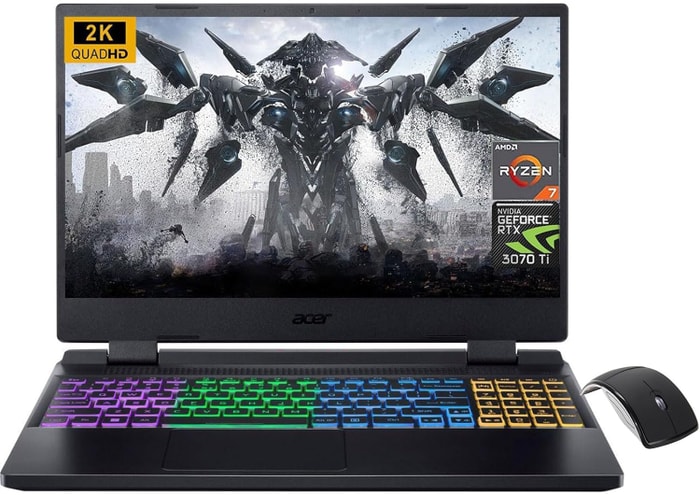 $680
$6801.acer Nitro 5
running a business laptop- Solid processor (Ryzen 7 6800H)
- Excellent graphics card (RTX 3070 Ti)
- One of most affordable laptops with an AMD Ryzen 7 processor
- Sizable 1TB SSD
- Middle-of-the-road memory amount (32GB)
- No IPS Panel (worse contrast)
Alternatives
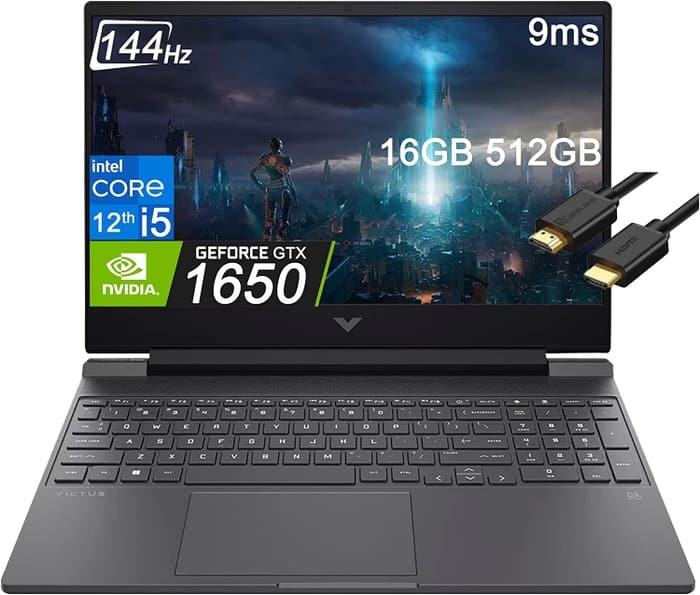
HP Victus 15t
- Low price
- Solid gaming performance
- Weak GPU yields unsatisfactory frame rates
- Screen only so-so despite 144Hz refresh rate

2.ASUS TUF Dash F15
Affordable and powerful, the ASUS TUF Dash F15 is a great option for running a business on a lower budget.- Lightweight and well-built design
- Good range of screen options
- More powerful than previous generations
- Competitively priced
- Some quirks affecting everyday ergonomics
- Most ports are located on the left edge
- FHD 144Hz panel option may not offer the best experience
Summary
The ASUS TUF Dash F15 is a lightweight and well-built laptop that offers good performance and competitive pricing. It has a range of screen options, but it's advisable to choose the FHD 300Hz display for the best experience. While it has some quirks, overall it's a solid choice for business use.
Reviews
Alternatives
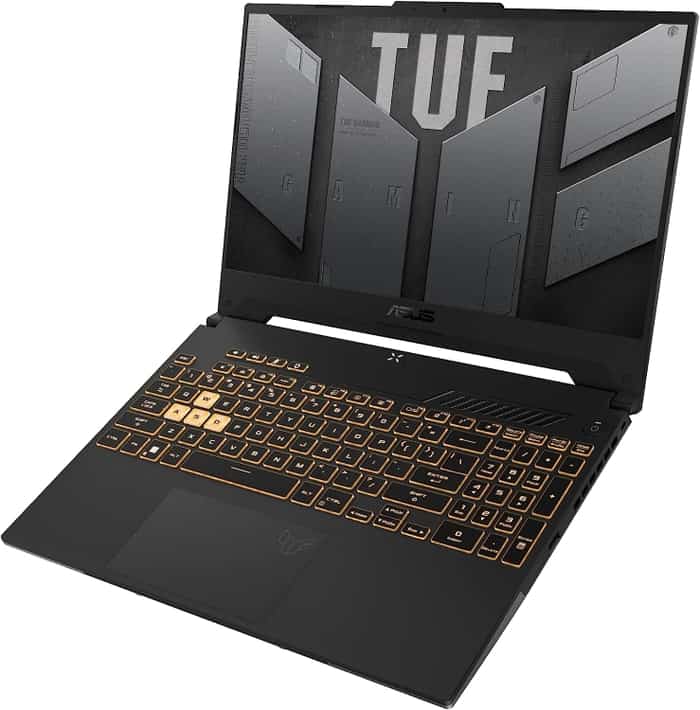
ASUS TUF F15 FX507VU-ES53
- Superb 1080p gaming
- Strong productivity capabilities
- Poor webcam, touchpad, and speakers
- Some games appear washed out on display

3.Lenovo Legion 5i Pro 16
Lenovo Legion 5i Pro 16: A powerful and stylish laptop for business with some minor drawbacks.- Stylish, sleek form factor
- Gorgeous display
- Strong performance
- Quiet fans
- Webcam quality is not great
- No biometrics
- SSD is slightly slower than competition
Summary
The Lenovo Legion 5i Pro 16 is a powerful and stylish laptop that offers strong performance and plenty of ports. It has a sleek form factor, a gorgeous display, and quiet fans. However, the webcam quality is not great, there are no biometrics, and the SSD is slightly slower compared to its competition.
Reviews
Alternatives
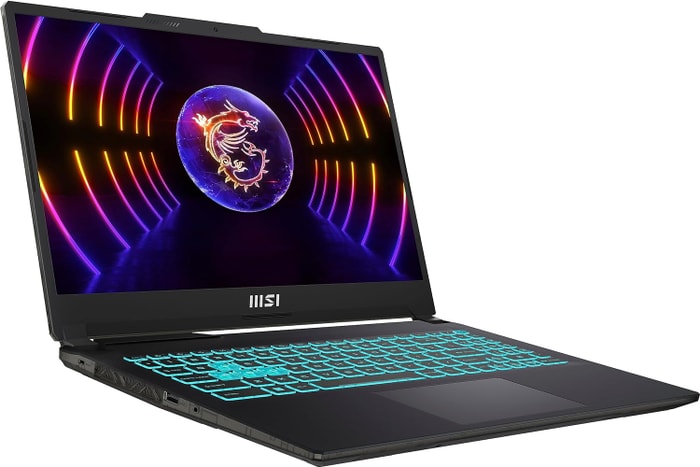 $1,430
$1,430MSI Cyborg 15
- Able to play at the highest 1080p settings
- Peppy processor for the money
- Display is dim and disappointing
- Sharp chassis edge can dig into wrists during typing
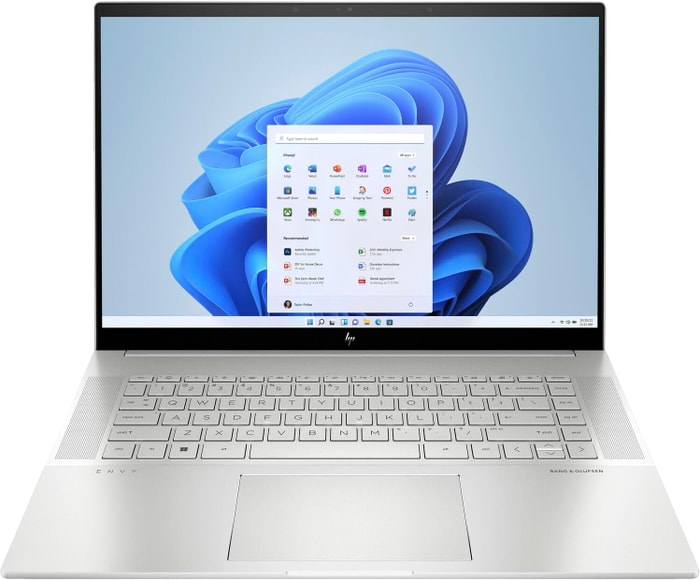 $1,800
$1,8004.HP Envy 16
The HP Envy 16 offers high-end features and powerful performance, making it a tempting choice for business users, although its weight and size may be a drawback.- Plenty of CPU and GPU power
- New 120Hz screen refresh rate
- High-res webcam
- Sleek design
- Merely adequate base screen
- Optional OLED has fewer pixels than before
- Bulky and heavy
Summary
The HP Envy 16 is a desktop replacement laptop that boasts high-end features like a 120Hz refresh rate display and a high-resolution webcam. With plenty of CPU and GPU power, it is suitable for creative apps and light gaming. However, the laptop's bulky and heavy design may not be ideal for users on the go.
Reviews
Alternatives

ASUS ROG Strix G15
- Powerful CPU and GPU for high-performance gaming
- Solid build quality and attractive design
- Limited connectivity options
- Potential for coil whine in specific scenarios

5.Lenovo Legion Pro 7i 16
Lenovo Legion Pro 7i 16: A powerhouse for business with sleek design and impressive performance.- Strong overall performance
- Big, bright, and fast display
- Per-key RGB lighting
- Some flex to keyboard deck
- Poor battery life
Alternatives
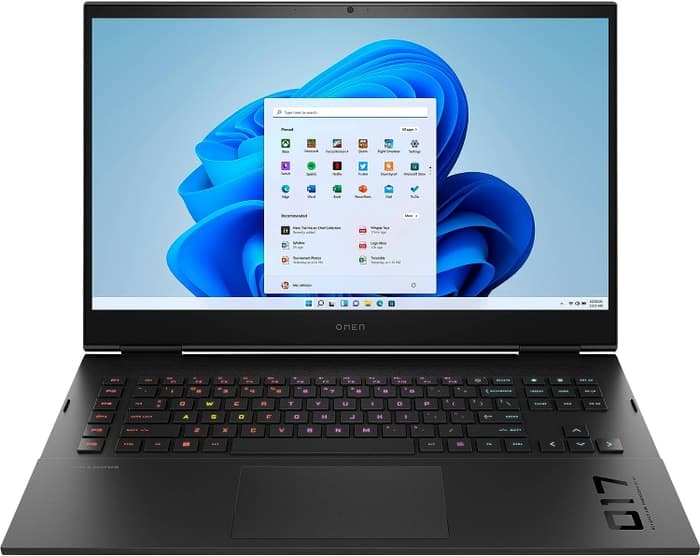
HP Omen
- Slim and portable build for a 16-inch laptop
- Midrange gaming performance at a reasonable price
- All-AMD configuration is outpaced by Intel- and Nvidia-based competitors
- Unimpressive 144Hz refresh rate and full HD resolution

6.HP Omen 17
Powerful performance and impressive display, but falls short in noise level and battery life.- QHD display with 165 Hz refresh rate
- Advanced Optimus technology
- Expandable working memory
- Thunderbolt 4 with Power Delivery
- Slightly below average RTX 4080 performance
- High noise level
- Clattery case
- Meager battery life
Summary
The HP Omen 17 is a high-end gaming laptop that offers excellent performance for video processing, rendering, and QHD gaming. It features a QHD display with a 165 Hz refresh rate, advanced Optimus technology, expandable working memory, and Thunderbolt 4 with Power Delivery. However, it falls slightly below average in terms of RTX 4080 performance, has a high noise level, and a meager battery life.
Reviews
Alternatives
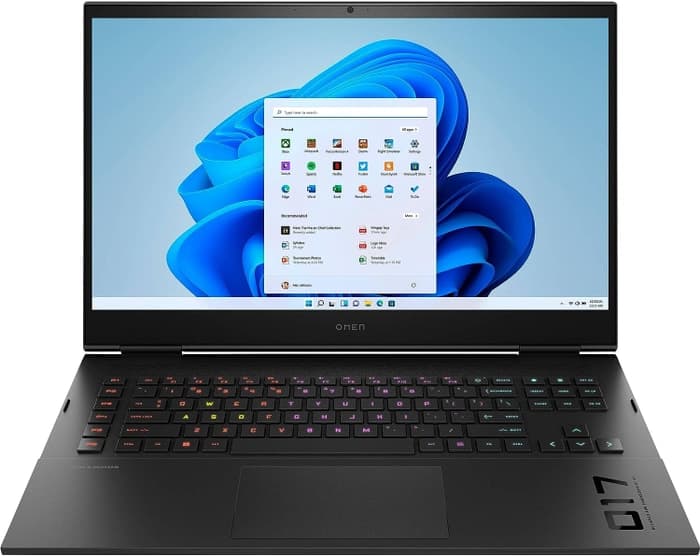
HP Omen
- QHD display with 165 Hz
- Expandable working memory
- Slightly below-average performance for a RTX 4080
- High noise level
Table of the Best Laptops for running a business
| Laptop | Price (approx) |
| acer Nitro 5 | $680 |
| ASUS TUF Dash F15 | $1,160 |
| Lenovo Legion 5i Pro 16 | $1,300 |
| HP Envy 16 | $1,800 |
| Lenovo Legion Pro 7i 16 | $3,390 |
| HP Omen 17 | $4,290 |





